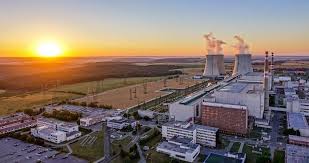The nuclear energy comeback in Europe is no longer just speculation—it’s becoming a clear policy shift as several nations revisit their long-standing stance on atomic energy. With increasing pressure to ensure energy independence and stability, countries like Denmark, Spain, and Germany are rethinking their approach to nuclear power.
In recent weeks, Denmark announced that it will reevaluate its 40-year ban on nuclear energy. The country plans to study the potential of newer, safer technologies like small modular reactors (SMRs) to complement its already strong wind and solar infrastructure. Danish Climate Minister Lars Aagaard emphasized that solar and wind remain the country’s primary energy focus, but new nuclear technologies could offer critical support during energy fluctuations.
“We must begin a serious analysis—not to replace solar and wind, but to see whether new nuclear can complement our energy system in the future,” Aagaard said.
Rising Costs of Renewables Prompt a Rethink
While wind and solar are still seen as the fastest and most cost-effective methods to drive the green transition, there are increasing concerns about hidden costs—particularly those related to balancing and transporting renewable energy across grids. As wind and solar energy shares grow, so do the complexities of maintaining a stable and reliable power system.
This has prompted a nuclear energy comeback in Europe, as policymakers begin to weigh whether nuclear could help stabilize the grid and support long-term energy goals.
Georg Zachmann from the Bruegel think tank explained that despite falling costs of renewables, nuclear power is again part of political conversations due to concerns around grid reliability and energy transportation costs.
Nuclear energy comeback in Europe: Spain Softens Its Stance on Atomic Energy
In a surprising move, Spain signaled a willingness to reconsider its timeline for phasing out nuclear energy. Although plans remain in place to retire nuclear reactors by 2035, officials have hinted that extensions could be possible. This change comes in the wake of a massive power outage that hit parts of Spain, Portugal, and southern France.
Some analysts have pointed to the heavy reliance on renewables as a contributing factor to the blackout, though the Spanish Prime Minister and national grid operator denied this.
Still, the event seems to have fueled discussions about energy diversity—and added weight to the argument for keeping nuclear power in the mix.
Germany Drops Nuclear Opposition in EU Legislation Talks
Once firmly anti-nuclear, Germany has now relaxed its stance, especially in EU negotiations. The newly elected government led by Chancellor Friedrich Merz is reported to support France’s push to give nuclear energy equal status with renewables in EU legislation.
Germany shut down its last nuclear plants in 2023, but this political change could reshape future policy, especially if nuclear power gains more favor in European legislation.
Is Nuclear the Future or a Costly Distraction?
While the nuclear energy comeback in Europe is gaining momentum, not everyone is convinced. Environmental groups warn that nuclear is costly, slow to build, and generates long-term waste management issues.
However, energy security and climate targets are driving renewed interest. As countries struggle to move away from fossil fuels without compromising reliability, nuclear is being reconsidered as a low-carbon option.
Zachmann notes that while next-generation technologies like SMRs are still unproven at scale, they capture the imagination of both industry and governments.
Renewables Still Dominate, But Nuclear Is Rising
Despite the nuclear revival, renewable energy continues to dominate Europe’s electricity landscape. A report by energy think tank Ember showed that in the first half of last year, wind and solar accounted for 30% of the EU’s electricity generation—surpassing fossil fuels for the first time.
At the same time, nuclear energy output rose by 3.1%, showing that the trend is not just political but also reflected in actual generation data.
Nuclear’s Role in Europe’s Energy Future
The nuclear energy comeback in Europe reflects a broader search for balanced, reliable, and clean energy solutions. While challenges remain, countries are increasingly open to nuclear power as part of a diversified energy portfolio. As Denmark, Spain, and Germany lead this shift, the rest of Europe may soon follow.
This renewed interest in nuclear is not about replacing renewables—but about reinforcing them in the pursuit of a stable, independent, and carbon-free energy future. Want to stay updated with latested news? Then stay tuned with 10X Times News.






